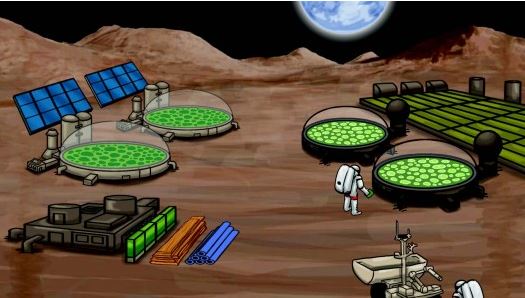Two scientists from Lawrence Berkeley National Laboratory have put forth an idea in the Journal of the Royal Society Interface that could shrink the supporting payload and reduce the cost for venturing 34 million miles to Mars. They propose using synthetic biological processes to turn crew waste, Martian soil, minerals and gases from the atmosphere into propellants, food, medicine, and raw materials for three-dimensional printing.
“Not only does synthetic biology promise to make the travel to extraterrestrial locations more practical and bearable, it could also be transformative once explorers arrive at their destination,” said Adam Arkin, director of Berkeley Lab’s Physical Biosciences Division in a press release.

For example, crew members would be able to turn carbon dioxide into methane for fuel. They could also use microbes to sustain plant-based farming and produce pharmaceuticals, and could turn minerals into the raw materials for 3D printing.
Their calculations show that by turning to synthetic biology they could decrease payloads. Specifically, they could reduce the amount of fuel needed by 56%; they could reduce food by 38%; they could reduce the amount of materials needed to build a habitat for six people by 85%; and they could reduce pharmaceuticals by 100%.
As of right now, there’s plenty of time to perfect a system of this kind, and the real-world tests don’t have to begin with the Red Planet. The plan can also work for a trip to the moon.
Story via Discovery.
Advertisement
Learn more about Electronic Products Magazine





